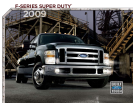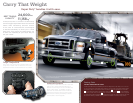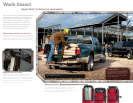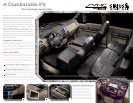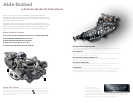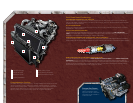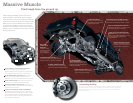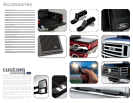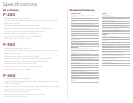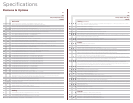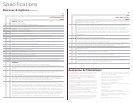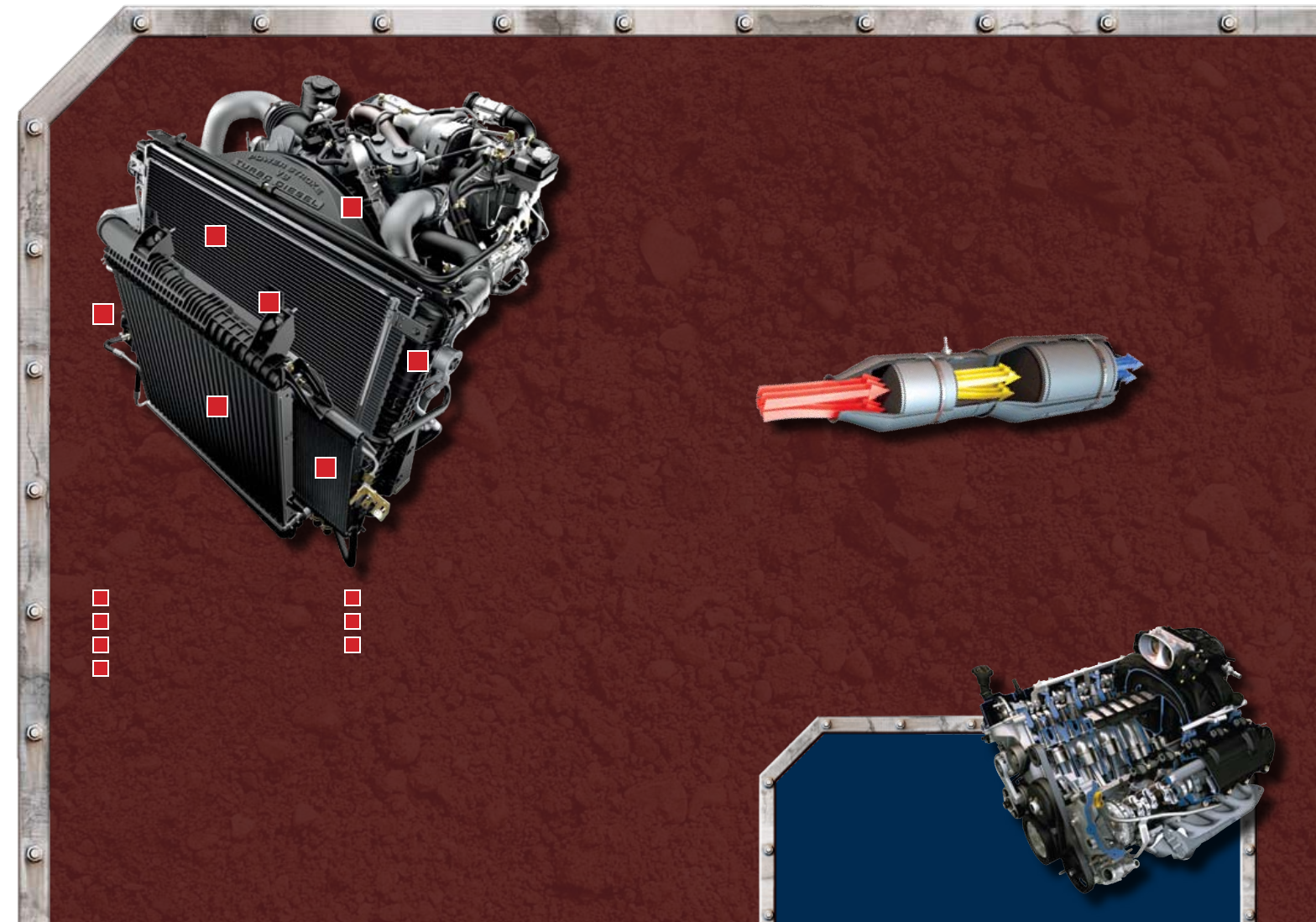
Proven Gas Power
A rugged 5.4L V8 or 6.8L V10
gasoline powerplant (shown
right) with manual or automatic
transmission is also available on
F-250 and F-350.
1
Fuel Heat Exchanger
2
Charged Air Cooler
3
Transmission Cooler
4
Large Engine Radiator
5
Power Steering Cooler
6
Air Conditioning Condenser
7
Engine-Mounted Fan Shroud
Comprehensive Cooling
This system also cools F-550 Super Duty.® The large radiator and the water pump flow
rate ensure efficient cooling. There are 6 different radiators (coolers) — including
one for the fuel-cooling system — designed to support engine emissions and enhance
durability, power and torque. An engine-mounted fan shroud improves air-flow
eciency, resulting in an overall cooling system that is capable and reliable.
Ford Clean Diesel Technology
HIGH-PRESSURE COMMON-RAIL FUEL INJECTION
Fuel pressurized to 1930 bar (28,000 psi) travels through a common rail and into state-of-the-art piezo-electric
injectors that deliver multiple precision fuel injections for a smooth, clean burn, low diesel clatter, superb cold-start
capability and reduced emissions.
OIL-JET PISTON COOLING
Cooling jets of oil spray inside the pistons to optimize ring life for long-term durability, and help reduce combustion
temperatures to control emissions.
EXHAUST GAS RECIRCULATION (EGR)
The EGR system pumps burned gases through 2 coolers to re-enter the air system at the HIGH-TORQUE EGR
VALVE. These cooled gases, along with intercooled combustion air and oil-jet piston cooling, help lower combustion
temperature. This helps inhibit the formation of nitrogen oxides (NOx).
ULTRA-LOW-SULFUR DIESEL FUEL (ULSD), B5 FUEL, AND CJ-4 ENGINE OIL
The Power Stroke runs only on ULSD, the standard for North American diesel fuel. It also supports B5, which is made by
blending 95% ULSD with 5% BioDiesel. CJ-4 engine oil must be used for proper lubrication and emissions system operation.
DIESEL OXIDATION CATALYST AND DIESEL PARTICULATE FILTER
A rugged stainless steel housing contains the DIESEL OXIDATION CATALYST (DOC) and the DIESEL PARTICULATE
FILTER (DPF). Up front, the DOC reduces hydrocarbons in the exhaust and generates heat for the DPF. Next, the
DPF traps particulates in its silicon carbide wall-flow catalyst. The system reduces particulate matter (soot) emissions
to levels on par with a gasoline engine of similar size and power. The DOC/DPF is self-diagnostic and self-cleaning,
automatically performing a regeneration/clean cycle when needed.
1
2
3
4
5
6
7



